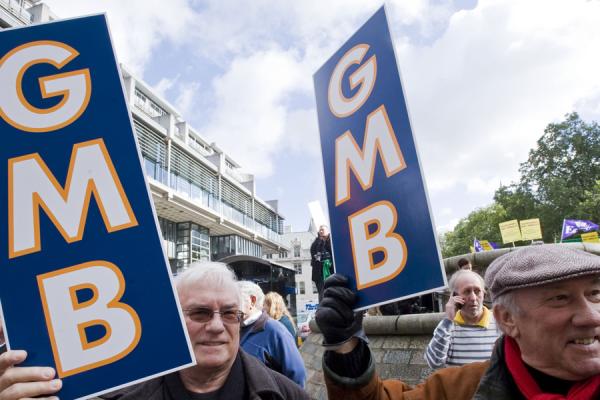Public sector employment falls in Dorset and Wiltshire

A new study by GMB of official data shows that between 2009 and 2016 there was a drop of 22,223 in the number of people employed in public sector jobs based in Dorset and Wiltshire in the areas covered by the regions 10 councils. In 2009 there were 126,448 employed in public sector jobs. By 2016 this had dropped to 104,225. This is a drop of 17.6%.
Over the same period the drop in public sector employment in Great Britain was 606,260. In 2009 public sector employment across the Great Britain was 5,861,678. By 2016 this figure had dropped to 5,255,418. This is a drop of 10.3%.
The drop in public sector employment in Christchurch was 42.1% between 2009 and 2016. This was the biggest drop in the region. It was followed by Weymouth and Portland where the drop was -39.6%, followed by Purbeck -38.9%, East Dorset -31.9%, North Dorset -28.6%, and Poole -23.6%.
The figures covering the 10 councils are set out in the table below, ranked by the highest percentage drop since 2009. This is from a new study by GMB Southern Region of official data from the Office of National Statistics (ONS) for 10 councils in Dorset and Wiltshire. It compares public sector employment numbers in 2009 and 2016, followed by the changes in numbers and in percentages.
Business Register and Employment Survey ONS Crown Copyright Reserved
2009 data excludes units registered for PAYE only (Public Sector Employees)
| 2009 | 2016 | change | % | ||
| change | |||||
| Great Britain | 5,861,678 | 5,255,418 | -606,260 | -10.3 | |
| England | 4,852,497 | 4,339,519 | -512,978 | -10.6 | |
| South West | 501,893 | 426,905 | -74,988 | -14.9 | |
| rank | |||||
| 1 | Christchurch | 3,288 | 1,905 | -1,383 | -42.1 |
| 2 | Weymouth and Portland | 5,177 | 3,126 | -2,051 | -39.6 |
| 3 | Purbeck | 4,342 | 2,653 | -1,689 | -38.9 |
| 4 | East Dorset | 5,578 | 3,799 | -1,779 | -31.9 |
| 5 | North Dorset | 4,813 | 3,435 | -1,378 | -28.6 |
| 6 | Poole | 16,129 | 12,324 | -3,805 | -23.6 |
| 7 | West Dorset | 15,331 | 11,817 | -3,514 | -22.9 |
| 8 | Swindon | 21,573 | 18,629 | -2,944 | -13.6 |
| 9 | Wiltshire | 35,934 | 32,694 | -3,240 | -9 |
| 10 | Bournemouth | 14,283 | 13,843 | -440 | -3.1 |
Paul Maloney, GMB Regional Secretary, said: “Public sector employment has fallen by 74,988 in the South West as part of a fall of 606,260 overall across Great Britain.
“It is not possible to reduce public sector employment on this scale without damaging the vital public services we all rely on for a civilised society.
“Law enforcement and police, armed services, further education, social and children’s services, social care, environment services, parks and libraries, social welfare, transport infrastructure, refuse and street cleaning and all aspects of public administration have all been subjected to often quite savage cuts.
“It is high time to stop now with further cuts. GMB does accept that the public sector deficit should be eliminated. The proper way to do this is to increase the tax base so as to afford the vital public services we all rely on for a civilised society. A good place to start would be with the Panama Papers and the Paradise Papers that shows tax avoidance by the wealthy on an industrial scale. Another would be a system of corporate taxes that can’t be avoided by transfer pricing and tax havens.”
Contact: Andy Prendergast 07984492726 or GMB Press Office 07970 114 762
Notes to Editors
1) Source: Office for National Statistics, Nomis. Business register and employment survey public / private sector.
2) 2009 data excludes units registered for PAYE only but this has minimal impact on the public sector.
3) This is an employer survey of the number of jobs held by employees. The survey records a job at the location of an employees workplace.
4) When looking at changes in the number of employees in the public and private sectors, it is worth noting that these estimates can be distorted as a result of changes to the public or private designation of large businesses. For example, the transport and storage (including postal) industry in the public sector declined in 2014 due to the privatisation of the Royal Mail. Similarly, the finance and insurance industry in the public sector declined in 2014 due to the return to the private sector of one of the major banks brought into public ownership in 2008.



